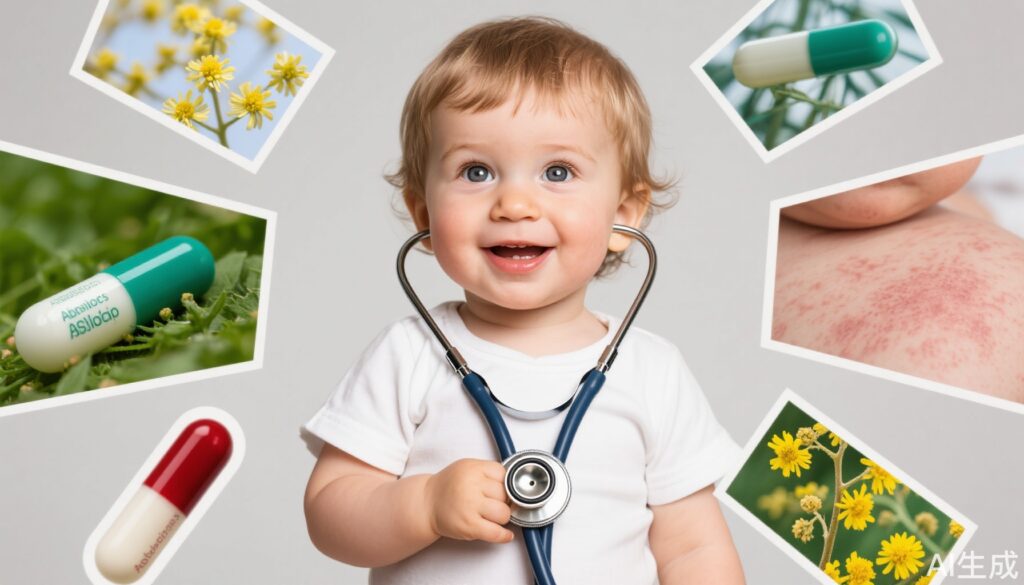Antibiotics are a cornerstone of modern medicine, saving millions of lives by combating bacterial infections. However, their use, especially in early childhood, is increasingly scrutinized for its potential long-term effects. A recent study presented at the European Respiratory Society (ERS) annual meeting highlights the association between antibiotic use in children under two years old and an elevated risk of developing allergies later in life.
Understanding Allergies
Allergies occur when the immune system overreacts to otherwise harmless substances, such as pollen, dust, or certain foods. This immune overreaction releases inflammatory mediators that can cause various symptoms, including rashes, fever, and respiratory issues. The prevalence of allergies has been rising globally, with nearly half of all children experiencing some form of allergic reaction.
The Study’s Findings
The research analyzed data from multiple studies conducted between 1996 and 2015, encompassing thousands of participants. The findings revealed that children who were administered antibiotics before the age of two had a significantly higher risk of developing eczema (15%-41%) and hay fever (15%-56%). Moreover, the risk correlated with the number of antibiotic courses taken, suggesting a dose-dependent relationship.
Potential Mechanisms
While the precise biological mechanisms remain unclear, researchers hypothesize that antibiotics may disrupt the delicate balance of the gut microbiota, which is crucial for immune system development. This disruption might predispose children to immune dysregulation, increasing their vulnerability to allergic conditions.
Expert Insights
Professor Fariba Ahmadizar from Utrecht University, who led the study, emphasized the importance of cautious antibiotic use. “The earlier antibiotics are administered in life, the greater the risk of developing eczema and hay fever later on,” she noted.
Practical Implications for Parents
For parents and caregivers, this study underscores the importance of using antibiotics judiciously in young children. While antibiotics are essential for treating bacterial infections, their inappropriate use for viral infections or as preventive measures should be avoided unless explicitly recommended by a healthcare provider.
Conclusion
This research adds to the growing body of evidence linking early-life antibiotic exposure to long-term health consequences. Parents, healthcare providers, and policymakers must work together to balance the benefits of antibiotics with their potential risks, ensuring that these life-saving medications are used responsibly and effectively.



